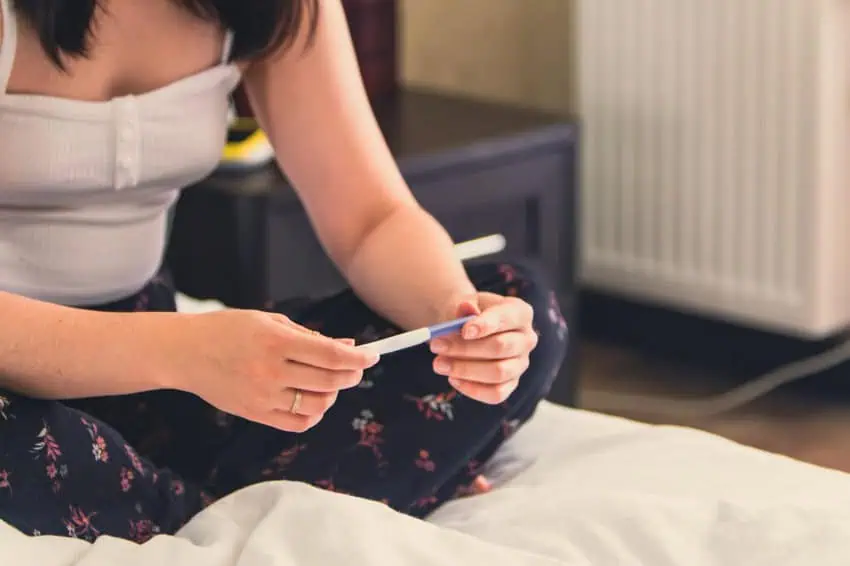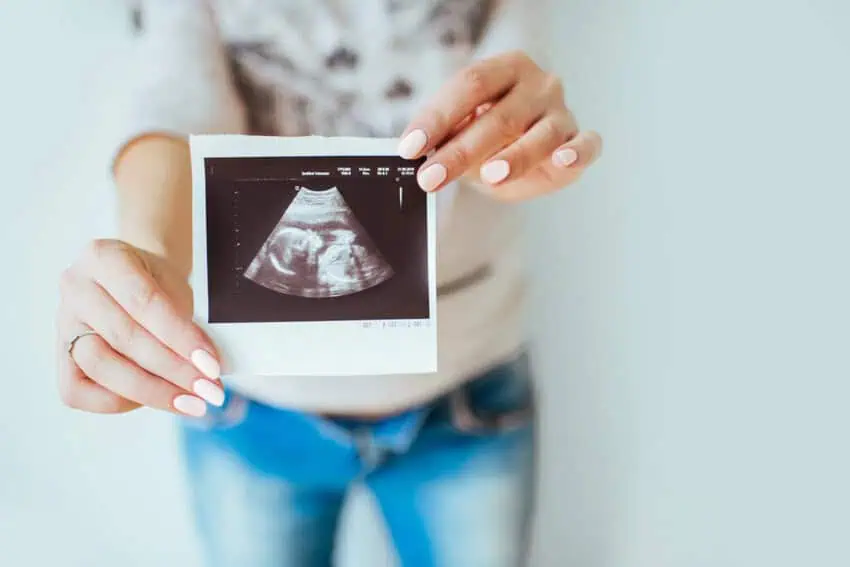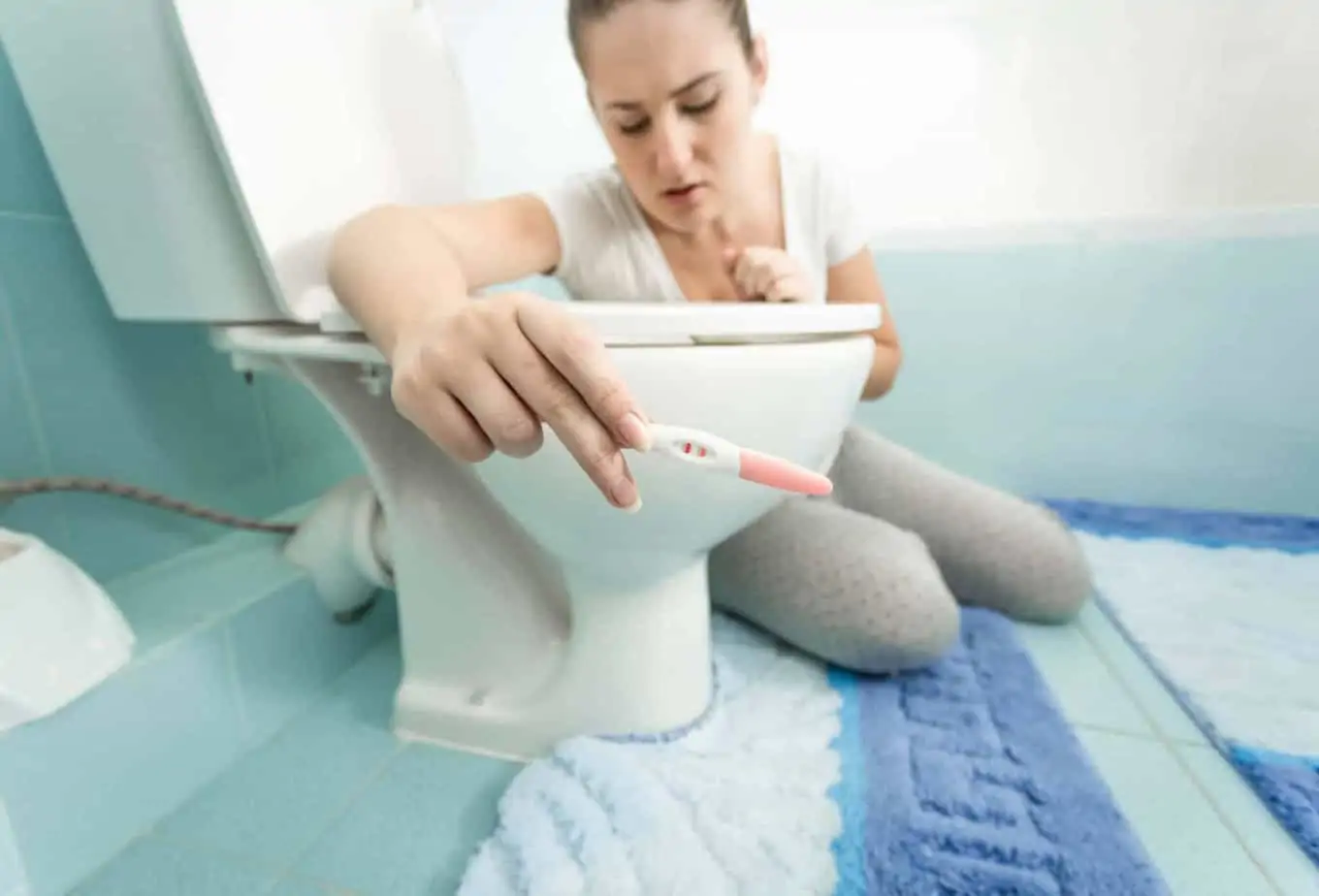If you’re trying to conceive, you might be exploring every possible avenue to increase your chances of getting pregnant.
It can be an emotionally stressful time in your life if you’ve been trying to conceive for a while, or even if you’re just starting to think about trying!
While there are plenty of medical options available, many women are turning to natural and holistic methods to prepare their bodies for conception and the benefits are life changing when they become a part of your lifestyle.
In my holistic health practice, I do see many women who want to prepare their bodies for pregnancy, as well as some who are balancing hormones and recalibrating their bodies to be in alignment with conception.
Now, don’t think because you’re the one trying to get pregnant that you’re doing this alone. Your partner’s health is equally as important and they should be on board with making all of these changes too. You’re a team at the beginning, during and at the end!
This article offers practical steps, based on holistic and natural practices, to help you boost your fertility naturally and increase your chances of a healthy pregnancy.
Whether you’ve faced challenges with getting pregnant or simply want to prepare your body for an optimal pregnancy, these tips can provide valuable support.
Trying to Get Pregnant? Increase Your Chances of Pregnancy Naturally With These Lifestyle Adjustments
1) Monitor Your Menstrual Cycle
Understanding your menstrual cycle is key to knowing when you’re most fertile. And guess what? We’re all on our own schedule so using a few tools can help you narrow down when is an optimal time for your to try to conceive.
- Track Ovulation
Tracking ovulation is one of the most effective ways to increase your chances of getting pregnant. You can use ovulation predictor kits (OPKs), track your basal body temperature (BBT), or monitor changes in your cervical mucus to determine when you’re ovulating. Ovulation test strips are easy and the way to go for tracking ovulation. - Maintain a Fertility Journal
Keeping a fertility journal can help you track your cycle, symptoms, and any changes in your health. This information can be valuable for identifying patterns and making adjustments to your fertility plan. A fertility tracker can be helpful but knowing your body’s cues and staying in tune with yourself is always the best way to go! If you notice you aren’t having signs of ovulation, consider consulting with a homeopathy or naturopath to understand why.
2) Nourish Your Body with Fertility-Boosting Foods
A healthy diet plays a crucial role in enhancing fertility. The right nutrients can balance your hormones, regulate your menstrual cycle, and increase your overall reproductive health. Yes, ditching sugars, processed foods, caffeine, alcohol for women and men is important!
- Focus on Whole Foods
Eating a diet rich in whole, unprocessed foods can support your body in many ways. Incorporate plenty of fruits, vegetables, whole grains, and lean proteins into your meals. These foods are packed with essential nutrients that can help regulate your menstrual cycle and improve your chances of conception. - Eat Fertility-Boosting Superfoods
Certain foods are known to support reproductive health. Some of the top fertility-boosting foods include:- Leafy Greens: Spinach, kale, and other leafy greens are rich in folate, a B-vitamin that is essential for conception and early pregnancy.
- Nuts and Seeds: Almonds, walnuts, flaxseeds, and chia seeds are high in omega-3 fatty acids, which can help regulate hormones and improve egg quality.
- Berries: Blueberries, strawberries, and raspberries are high in antioxidants, which can protect eggs and sperm from damage.
- Avocados: These are rich in healthy fats that can help regulate your menstrual cycle as well as your brain function!
- Incorporate Healthy Fats
Healthy fats, such as those found in avocados, nuts, seeds, and olive oil, are essential for hormone production and most people don’t get enough protein or healthy fats in their diet. Including these fats in your diet can help regulate your menstrual cycle and improve your chances of conception and a healthy pregnancy. (Remember, baby will need a lot of healthy fat for growth so it’s best to start now!) - Avoid saturated fats and vegetable oils for cooking and replace with quality butter, olive oil, avocado oil and toss (permanently) the canola, vegetable and sunflower/safflower oil. Your health and heart will thank you! With olive oil – look for cold-pressed, and from outside the United States. Our family likes this olive oil brand and it tastes great.
- Stay Hydrated
Drinking plenty of (quality) water is essential for maintaining optimal health, including reproductive health. Staying hydrated helps your body produce cervical mucus, which is important for sperm to reach the egg.
Note: Quality water doesn’t include tap water, but mineral, filtered, distilled and structured water is best. City water has fluoride, chlorine, “forever” chemicals and other toxins that are best to avoid, even at nanoparticle levels. (It’s the accumulation factor.) You can test your water and find what contaminants are in it with My Tap Score. I recommend using this to find what you have in your water before you consider what filter to buy as well!
If you’re looking for a water filter, Pro One USA is one of the more affordable filter options (under counter and above counter, plus shower filters) and have the third-party testing to prove their filters do what they say. Many companies don’t offer third-party testing results so you have to be careful!
3) Reduce Stress and Promote Relaxation
Stress can significantly impact your chances of getting pregnant. High levels of stress hormones, such as cortisol, can interfere with ovulation and reduce fertility.
- Practice Mindfulness and Meditation
Incorporating mindfulness practices into your daily routine can help you manage stress. Meditation, deep breathing exercises, and yoga are all effective ways to calm the mind and reduce anxiety. Even just a few minutes of mindfulness each day can make a difference in your overall well-being and fertility. There are many meditation and mindfulness apps with as little as 5-minutes a day that can bring you back to calm and center. - Consider Acupuncture
Acupuncture, an ancient Chinese medicine practice, has been shown to improve fertility by reducing stress, increasing blood flow to the reproductive organs, and balancing hormones. Many women find that acupuncture helps them relax and increases their chances of conception and have had great success with it! - Prioritize Rest and Sleep
Getting enough sleep is essential for hormone regulation and overall health. Aim for 7-9 hours of quality sleep each night to support your body’s natural fertility processes. Avoid blue light at night (no screens at least an hour before bedtime), exercise and stimulants (hello, chocolate.)
4) Balance Your Hormones Naturally
Hormonal imbalances can be a major obstacle to getting pregnant. Fortunately, there are natural ways to support hormonal balance.
- Consider Herbal Remedies
Certain herbs have been traditionally used to support reproductive health and balance hormones. Some of the most commonly used herbs for fertility include (this is not medical advice – please check with your OB and listen to how your body responds to any and all things you eat and do!):
-
- Mamoosh Tincture from Angie Green is a delicious and incredible tincture containing cacao fruit, macaroni root, fenugreek seek, saffron fruit and damiana leaf. Great for regulating your cycle, balancing hormones and the 1000s of reviews speak for themselves. (They have a men and women’s versions for both of you and I highly recommend!)
- Vitex (Chaste Tree Berry): Known for its ability to balance estrogen and progesterone levels, Vitex can help regulate menstrual cycles and improve fertility.
- Maca Root: This adaptogenic herb is known for its ability to support hormone balance and increase libido. It can be particularly helpful for women with irregular cycles or low energy levels.
- Red Raspberry Leaf: Often used as a uterine tonic, red raspberry leaf can help strengthen the uterine lining and support overall reproductive health and is dranken as a tea that tastes delicious.
- Reproductive Supplemental Support
Certain supplements can support reproductive health and improve your chances of getting pregnant (this is not medical advice):
-
- CoQ10
Coenzyme Q10 (CoQ10) is an antioxidant that can improve egg quality and support overall reproductive health. It’s especially beneficial for women over the age of 35.
- CoQ10
-
- Omega-3 Fatty Acids
Omega-3 fatty acids are important for hormone regulation and overall reproductive health. You can get omega-3s from foods like fish, flaxseeds, and walnuts, or consider taking a high-quality fish oil supplement.
- Omega-3 Fatty Acids
- Exercise in Moderation
While regular exercise is important for overall health, too much intense exercise can disrupt hormonal balance and interfere with ovulation. Crossfit and high intensity exercise can cause adrenal disruption, affect cortisol levels and in turn, estrogen production and ovulation/menstrual cycles.
Aim for moderate exercise, such as walking, swimming, or yoga, to support your fertility with 2-3 weight lifting sessions for 20 minutes a week. You really don’t need more than that!
5) Detox Your Environment
Your environment plays a significant role in your fertility. Exposure to certain chemicals and toxins can negatively affect your reproductive health.
- Eliminate Toxins from Your Home
Many household cleaning products, personal care items, and even some foods contain harmful chemicals that can disrupt your hormones. Truly Free is my favorite non-toxic home cleaner that I can’t stop sharing about with family and friends.
Consider switching to natural, non-toxic alternatives for cleaning products, cosmetics, and personal care items. Look for products that are free from parabens, phthalates, and other endocrine-disrupting chemicals. Use the “Think Dirty” App to find non-toxic products, personal care and make-up to remove all these chemical and endocrine disrupting exposures.
Personal care products and makeup are the number #1 source of toxins women use daily. Everything that goes onto the skin gets into the blood stream within 25 seconds and that means if we apply make-up with 200+ toxins in it, it’s a direct source to our internal organs via the blood supply system.
Skip anything labeled “fragrance” which because of proprietary labeling laws in the United States, doesn’t force companies to disclose what’s actually inside the fragrance ingredient. This means companies can put over 3000 chemicals inside one ingredients – none of them beneficial for you.- Shop non-toxic fragrances such as Dime Beauty.
- Don’t use candles in the home unless they are also non-toxic.
- Ditch air fresheners, car fresheners and “fragrant” products unless they are natural, essential oil based.
- Avoid Pesticides and Herbicides
Pesticides and herbicides used in conventional farming can have a negative impact on fertility. Whenever possible, choose organic produce to reduce your exposure to these chemicals.- Stop spraying inside and outside the home for weeds & bugs,
- Please don’t EVER use roundup in your yard,
- Choose organic produce whenever possible (but especially with berries and fruit!)
- Limit Plastic Use
Plastics can contain harmful chemicals like BPA, which can interfere with hormone levels.- Avoid using plastic containers for food storage, and opt for glass storage containers or stainless steel instead.
- Don’t microwave or eat out of to-go containers that are plastic either!
- Choose a stainless steel or glass water bottle.
Grab the beginner’s guide to non-toxic living here.
6) Work with a Homeopath
If you’ve had a challenging time getting pregnant or simply want to prepare your body for an optimal pregnancy, working with a homeopath can be incredibly beneficial. I cannot emphasize the success of clients and women I know in my practice and life who have worked with a homeopath and not only became pregnant, but cleared up many health and behavior distress they were experiencing before, all due to homeopathy.
- Personalized Care for Your Unique Profile & Support for Recurrent Pregnancy Loss
A homeopath will take into account your unique emotional, mental and physical health throughout your entire life. He or she will provide customized remedies and lifestyle recommendations to support your fertility and overall health.
If you’ve experienced recurrent pregnancy loss, a homeopath can help identify underlying imbalances and provide targeted treatments to address them. This holistic approach can improve your chances of a successful pregnancy and helps the body at the root cause.
Even if you’re just starting to think about getting pregnant, working with a practitioner can help you prepare your body for conception. They can provide guidance on diet, supplements, and lifestyle changes to create the best possible environment for conception.
7) Stay Active and Maintain a Healthy Weight
Maintaining a healthy weight is important for fertility, as being either underweight or overweight can affect your menstrual cycle and hormone levels.
If you’re struggling with your weight, consider consulting with a nutritionist in your area who also specializes in fertility and consider a functional nutritionist who many order labs and look at them for deficiencies and areas otherwise missed by general nutritionists. She or he will help you create a personalized diet and exercise plan to support your fertility goals and lifestyle.
8) Create a Healthy Sleep Routine
Quality sleep is essential for hormone balance and overall health. Your circadian rhythm is extremely important to your overall health and hormone production.
- Establish a Bedtime Routine
Creating a relaxing bedtime routine can help you wind down and prepare for a restful night’s sleep. This might include activities like reading, taking a warm bath, or practicing meditation. - Limit Screen Time Before Bed
Exposure to blue light from screens can disrupt your sleep patterns. Try to limit screen time in the evening, and consider using a blue light filter on your devices (Iris on computers and Nightshift on iPhones) if you need to use them before bed.
9) Avoid Alcohol, Caffeine, and Smoking 6 Months Pre-Conception (Minimum)
Alcohol, caffeine, and smoking can all negatively impact fertility. This also goes for your partner – they should do all the same things you are to prepare your body for pregnancy. After all, you’re in this together and the quality of healthy and sperm/egg are up to both of you!
- Limit Alcohol Consumption
If you’re trying to conceive, it’s best to limit your alcohol intake or avoid it altogether. Alcohol can disrupt your hormone levels and negatively affect ovulation. - Cut Back on Caffeine
While moderate caffeine consumption is generally considered safe, high levels of caffeine can reduce your chances of getting pregnant. Try to limit your caffeine intake to one cup of coffee per day or switch to decaffeinated options. - Quit Smoking or Vaping
Smoking is one of the most significant risk factors for infertility. If you smoke or vape, quitting is one of the best things you can do for your reproductive health and limiting your exposure to this is equally important
Conclusion:
Increasing your chances of getting pregnant naturally involves a holistic approach that includes nourishing your body with fertility-boosting foods, reducing stress, balancing your hormones, and creating a healthy environment. By incorporating these practical, natural, and holistic methods into your daily
Additional Resources:
- 10 Things to do BEFORE You Try to Get Pregnant
- Planning for a Healthy Pregnancy & Helpful Hacks for New Moms
- Create a Birth Plan: Printable Sample Birth Plan for Labor & Delivery
- 22 Natural Remedies to Treat Morning Sickness
Want even more?
Shop All Parenting Resources
Shop all of our parenting resources from self-regulation tools and managing big emotions to building self esteem and confidence. There are resources for all seasons of life!









